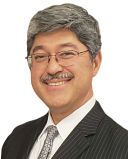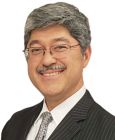Health
Yes, I Was at the Debate—No, I'm Not Afraid
Good and bad, there was a lot to learn from the latest Presidental Debate.
Posted October 4, 2020 Reviewed by Lybi Ma
I am a Preventative Cardiologist. I spend most of my time with patients working hard to prevent problems. We live by the motto, it is better, and usually easier, to prevent a problem than to fix something broken. Normally, I have the relatively straightforward task of preventing strokes, heart failure and vascular dementia. This year, cardiovascular disease will still be the number one cause of death, but COVID is on pace to be the third leading cause of death. Like cardiovascular injury, we all have the ability (and responsibility) to do what we can to prevent problems.
Lest we forget: "Prevent" is an active verb.
I have the distinct honor to know members of the Commission on Presidential Debates (CPD). If you don't know about this organization, you should. They are some of the most upstanding and outstanding members of our society who face the quadrennial Herculean task of creating an opportunity for the American People to meet the candidates, from whom we shall pick the next President. By definition, the Commission can never make everyone happy (after all, someone has to lose), but their professionalism should serve as an example for all of us.
Why should I be afraid? Unless you've been living on another planet, you have probably heard that the President of the United States was diagnosed and hospitalized with COVID just days after the debate. When you do the math, he clearly was infected at the time of the debate (although not yet symptomatic).
Yes, it's true that he did not wear a mask during the 90-minute exchange. Yes, it's true that much of his entourage also chose to not wear masks while they walked to their places and then sat for the show.
Yes, it's true that some people chose not to abide by rules even if they agreed to them. It's also true that some people rely on their own interpretation of medicine and science. It has been suggested that stubbornness can be more lethal than disease.
Hypothetically, I was exposed to an unmasked spreader of virus for an hour and a half. Why am I not afraid?
- Because the Cleveland Clinic runs a professional shop.
- Because the Commission on Presidential Debates is not a bunch of amateurs.
- Because I follow rules thoughtfully (not blindly), and
- Because all of us had the opportunity to prevent a problem.
I am unaware of any masked attendee or CPD staff who has tested positive since this event; we were all masked.
Practical things: Everyone was asked to test 72 hours prior to coming to the Debate. Everyone in the audience and staff was retested the morning of the debate, and isolated until the time of the debate. Everyone had a temperature screening immediately upon entering the debate. Perhaps most importantly, everyone wore a mask.
As for me—I don't just wear any mask. I have an N-95/99 filter inside a well seated cloth mask that actually covers my nose and mouth. I have basic eye protection (ie, glasses). Also, I assume that no one around me is wearing their mask correctly, so I don't get close to them.
Yes—I assume that people, even with good intentions, may have and spread the virus, so I always take precautions. Maybe I learned this as an Intern when I was caring for patients with AIDS. You take "Universal Precautions." You assume that anyone can infect you, and you take whatever steps you need to to prevent that.
As I've said, the CPD had the best possible guidance from the Cleveland Clinic. The precautions were all in place, but just in case someone slipped in who was infected, and just in case not every face was covered as well as might be possible, there were still other lines of defense. The venue was a large, open, well ventilated space, and everyone was seated far apart.
There are many lessons which could be learned from this. I was hoping to spend this time reviewing what the candidates had to say about the future of health care. I wanted to see if either candidate knew the difference between health insurance and health care, or if either candidate knew that computers make terrible doctors. But, they never got that far.
What I did learn is that there will always be things outside of our control, but there are always things that we can control.
We can do a lot to control our risk of contracting the virus. We can be proactive. We can protect ourselves, even if we are unconcerned about protecting others.
For those who don't want to wear masks, I understand. It is much like the transition we faced when we were told we had to wear seat-belts. It's our life to squander.
For those who are afraid and offended by those who don't wear masks, I understand. You can only control your own choices, so public shaming will probably simply make things worse. Just put on your own mask and assume that everyone is infected, and protect yourself.
For those who don't know: the virus enters through the nose, so wearing your mask on your chin just makes you look foolish and doesn't protect you.
The virus doesn't care about us. Like most medical things, we need to learn to manage it, not think we can cure it. This is the new reality, we need to get used to it. Although it would be nice if everyone looked out for their neighbor as much as themselves, we know that's not going to happen. So perhaps we should just all stay calm, and take a deep breath, stop giving-in to fear or self-righteousness, and brace ourselves for the hard work to come.
And, as Fox Newsman Chris Wallace said, "Wear the Damned Mask!"




